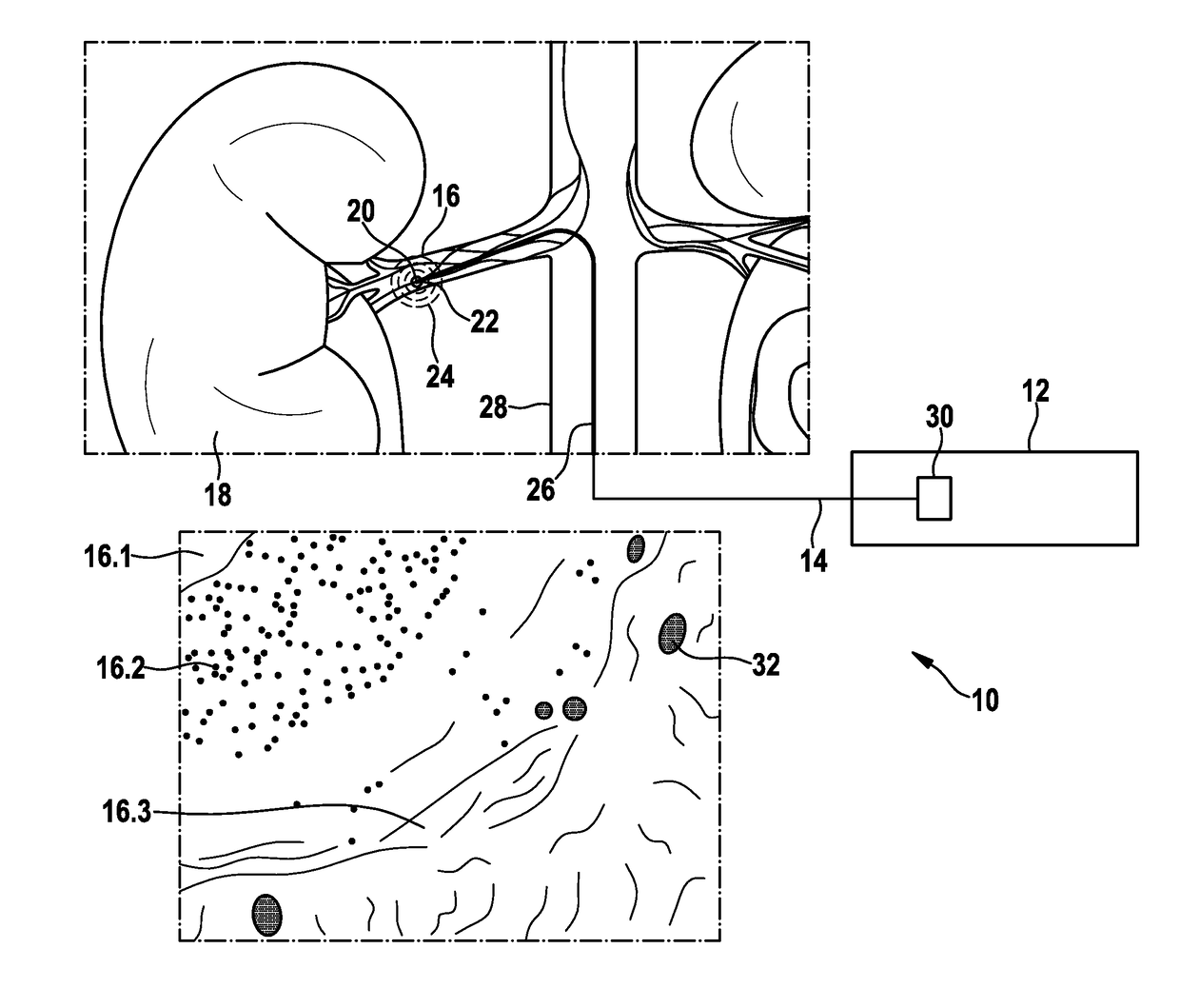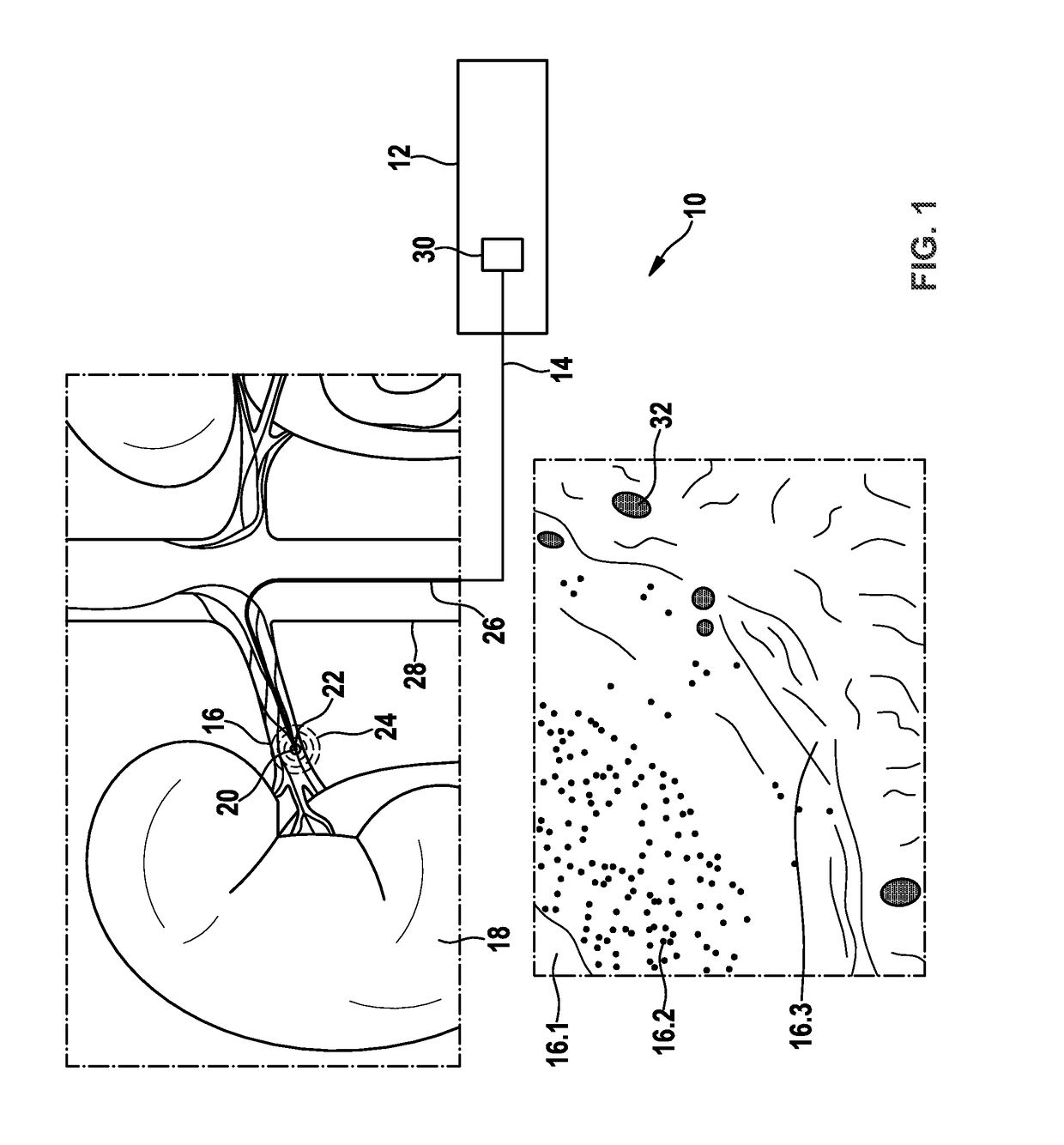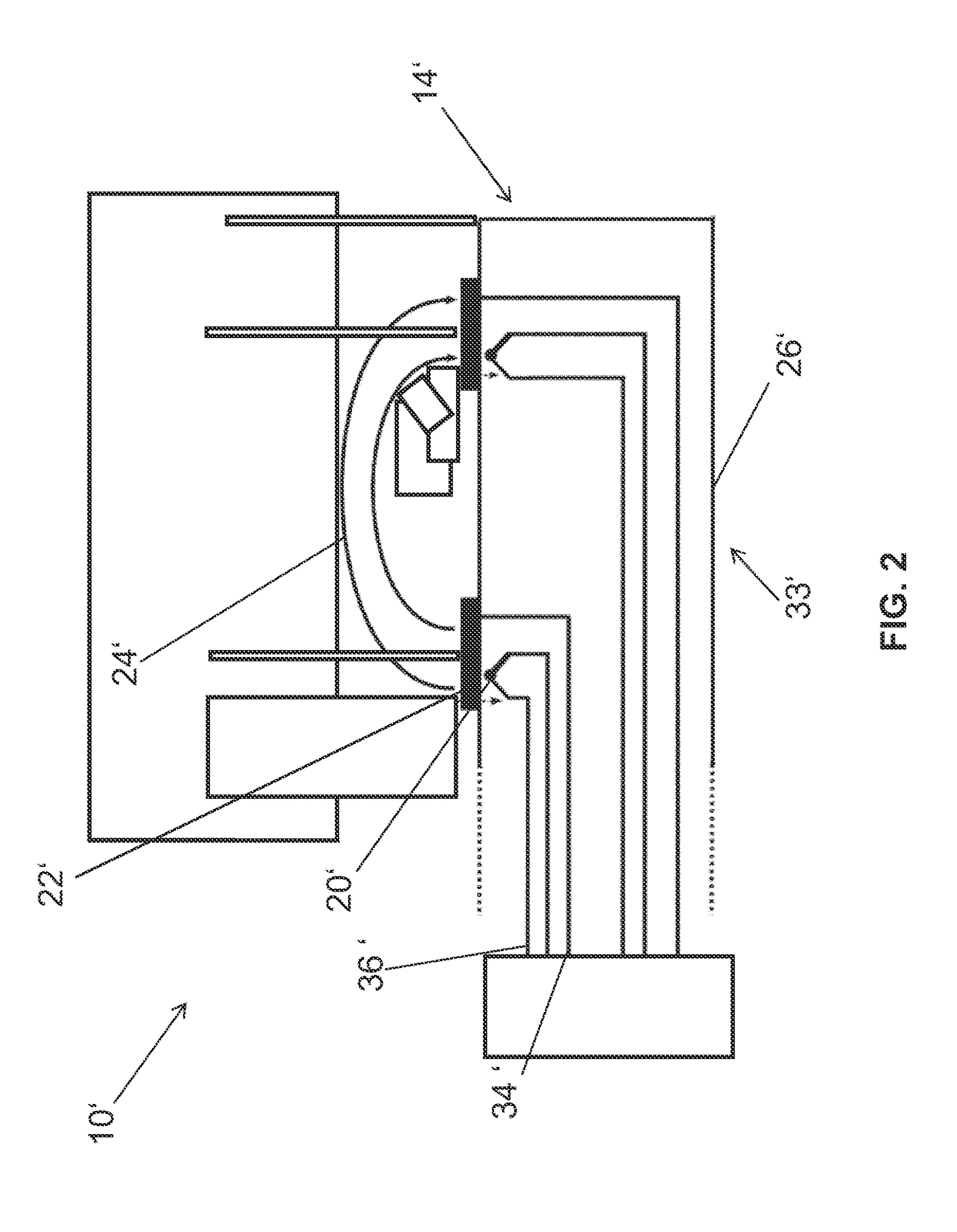Medical device for evaluating a temperature signal
a technology of temperature signal and medical device, which is applied in the field of medical device that evaluates temperature signal, can solve the problems of affecting the accuracy of the exact amount of energy transferred from the electrode to the tissue, affecting the accuracy of the measurement, and unable to come to a conclusion regarding the presence of reliable wall conta
- Summary
- Abstract
- Description
- Claims
- Application Information
AI Technical Summary
Benefits of technology
Problems solved by technology
Method used
Image
Examples
Embodiment Construction
[0048]The following description is of the best mode presently contemplated for carrying out at least one embodiment of the invention. This description is not to be taken in a limiting sense, but is made merely for the purpose of describing the general principles of the invention. The scope of the invention should be determined with reference to the claims.
[0049]FIG. 1 shows a first exemplary embodiment of a medical device 10 having an evaluation unit 12 and an electrode line 14, which is introduced into a renal artery 16 of a kidney 18 according to one or more embodiments of the invention. The lower part of FIG. 1 shows a part of a cross section of a renal artery vessel 16 with the vessel volume 16.1, media 16.2 and adventitia 16.3. One or more embodiments of the invention may include a temperature sensor 20 that delivers a temperature signal of the environment surrounding an ablation electrode 22, which may change due to an energy transfer 24 of the ablation electrode 22. At least ...
PUM
 Login to View More
Login to View More Abstract
Description
Claims
Application Information
 Login to View More
Login to View More - R&D
- Intellectual Property
- Life Sciences
- Materials
- Tech Scout
- Unparalleled Data Quality
- Higher Quality Content
- 60% Fewer Hallucinations
Browse by: Latest US Patents, China's latest patents, Technical Efficacy Thesaurus, Application Domain, Technology Topic, Popular Technical Reports.
© 2025 PatSnap. All rights reserved.Legal|Privacy policy|Modern Slavery Act Transparency Statement|Sitemap|About US| Contact US: help@patsnap.com



